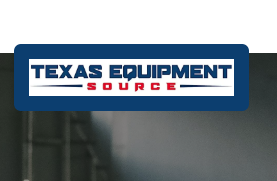A CFO contract, or Chief Financial Officer employment agreement, is one of the most critical documents defining the financial leader’s role, responsibilities, and rewards within an organization. As a CFO, you are responsible for overseeing financial planning, managing risk, ensuring regulatory compliance, and driving profitability. Your decisions directly impact the company’s fiscal health, investor confidence, and long-term stability. Because of this central role, negotiating a comprehensive CFO contract is essential to ensure your compensation is competitive, your authority is clear, and your future career opportunities are fully protected.
This service helps financial leaders review, negotiate, and refine CFO contracts to safeguard base salary, performance bonuses, equity participation, severance provisions, and change-of-control protections. It also focuses on minimizing overly restrictive covenants while addressing critical clauses on governance rights, reporting structures, and intellectual property. Whether you are stepping into a new role or renegotiating after achieving success, a tailored CFO contract ensures your agreement aligns with your expertise, contributions, and long-term goals.
Why a CFO Contract Requires Expert Negotiation
A CFO employment agreement is more than a compensation package. It is a legal and strategic framework that outlines your financial authority, performance expectations, bonus metrics, exit protections, and restrictions after leaving the company. Without proper negotiation, you may face unclear reporting lines, reduced severance protections, equity dilution, or restrictive non-compete clauses that limit future career moves.
By negotiating carefully, you can:
-
Align your compensation with market benchmarks and company performance
-
Secure equity incentives that reward your contributions to growth
-
Strengthen severance protection in case of unexpected termination
-
Protect career mobility by refining restrictive covenants
-
Ensure clarity on governance participation and decision-making authority
Key Components of a CFO Contract
Base Salary and Performance-Based Incentives
Your CFO contract should define a competitive base salary that reflects your leadership impact and industry standards. Performance-based incentives are equally important and should be tied to measurable outcomes like revenue growth, profit margins, cost optimization, or successful financing. Clear definitions of “target” versus “stretch” goals prevent disputes and ensure your bonuses are directly tied to meaningful financial achievements.
Equity Participation and Long-Term Rewards
Equity compensation is often a vital component of a CFO package, particularly in startups and companies undergoing expansion. Key equity considerations include:
-
The type of equity awarded (stock options, restricted stock units, or performance shares)
-
Vesting schedules with clear timelines and milestones
-
Accelerated vesting upon termination without cause or during change-of-control events
-
Anti-dilution protections to preserve the value of your ownership stake
-
Clear tax treatment and exercise terms
By negotiating robust equity terms, you ensure your financial rewards align with the company’s long-term success.
Severance and Termination Provisions
Well-structured severance provisions are essential to protect your financial security in case of termination. Key areas include:
-
Guaranteed salary continuation for a negotiated period after termination
-
Pro-rata bonus payments for partially completed performance periods
-
Acceleration or continuation of equity vesting
-
Extended healthcare and benefits coverage
-
Precise definitions of termination “for cause” and “without cause”
This clarity ensures you are protected in scenarios beyond your control, such as leadership changes, reorganizations, or company sales.
Change-of-Control Clauses
CFOs play a crucial role during mergers, acquisitions, and corporate transitions, which makes change-of-control provisions critical. These clauses can:
-
Trigger accelerated vesting of equity awards
-
Guarantee severance payouts and retention bonuses
-
Ensure continued authority during ownership changes
-
Protect your financial interests regardless of the transaction outcome
Governance Rights and Reporting Structure
Your CFO contract should define your direct reporting relationship, typically to the CEO or the Board of Directors. It should also outline your authority over financial decisions, budgeting, risk management, and strategic planning. In some cases, CFOs may negotiate participation in board or audit committee meetings to enhance governance involvement.
Intellectual Property and Confidentiality
As a CFO, you may develop proprietary financial models, strategies, or analytics tools. Your contract should clarify ownership of intellectual property created during your tenure and ensure confidentiality obligations are reasonable and balanced.
Restrictive Covenants
Most CFO contracts include non-compete, non-solicitation, and non-disparagement clauses designed to protect the company’s financial strategies and relationships. However, these restrictions must be reasonable in scope, geography, and duration. Narrowly tailored covenants protect company interests while preserving your ability to pursue future career opportunities.
Timing Is Key in CFO Contract Negotiation
The best time to negotiate or renegotiate your CFO contract is before you accept the role or immediately after delivering substantial financial achievements. For example, if you’ve led successful fundraising efforts, improved profitability, or overseen a critical acquisition, your leverage is strongest. By addressing terms proactively, you avoid being locked into outdated or unfavorable conditions that don’t reflect your true value.
Why Legal Guidance Is Essential
CFO contracts involve complex financial, legal, and regulatory considerations. Without experienced legal support, you risk:
-
Accepting bonus metrics that are vague or unachievable
-
Losing equity value due to unclear vesting or dilution clauses
-
Facing overly broad non-competes that limit future employment
-
Missing severance protections during corporate restructuring
Professional legal guidance ensures your agreement protects your financial rewards, defines your authority, and minimizes legal risks.
A Strategic Approach to CFO Contract Negotiation
This service begins with a detailed review of your existing or proposed CFO contract to identify potential risks and areas for improvement. It includes:
-
Benchmarking your compensation and benefits against industry norms
-
Structuring performance incentives and equity awards for maximum value
-
Enhancing severance and change-of-control protections
-
Refining restrictive covenants to ensure fairness and compliance
-
Clarifying job scope, governance rights, and performance expectations
The goal is to create a balanced agreement that rewards your leadership contributions while protecting your long-term career and financial interests.
Long-Term Benefits of a Strong CFO Contract
A carefully negotiated CFO contract delivers more than immediate financial rewards. It:
-
Creates long-term wealth through equity participation
-
Provides job security and financial protection during corporate transitions
-
Clarifies responsibilities, reporting structures, and strategic authority
-
Safeguards intellectual property and financial strategies
-
Preserves future career opportunities through fair restrictive covenants
Ultimately, it ensures your financial leadership is recognized, rewarded, and protected.
For financial executives seeking comprehensive CFO contract that reflect their value, secure compensation, and protect their career future, trust Robert Adelson & Associates. With deep expertise in negotiating executive agreements, they deliver tailored legal strategies that maximize rewards, strengthen protections, and support long-term success as a Chief Financial Officer.







0 Comments